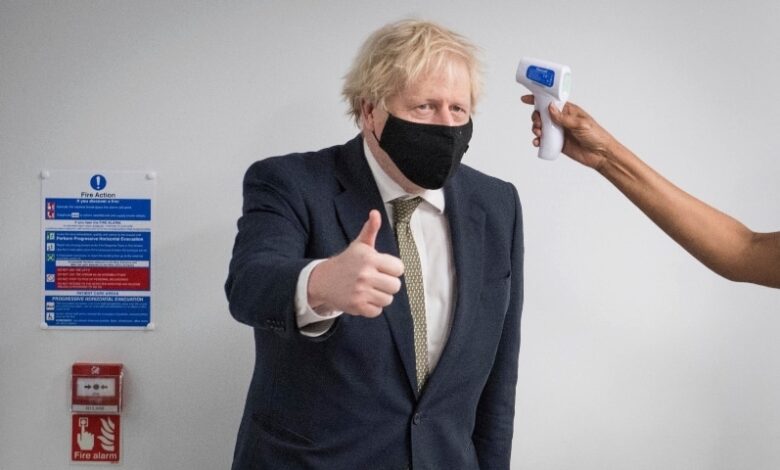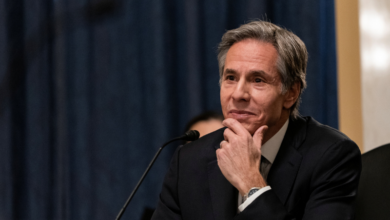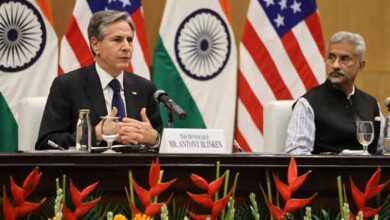England placed under lockdown till mid-Feb

LONDON: British Prime Minister Boris Johnson announced on Monday a new national lockdown for England until at least mid-February to combat a fast-spreading variant of the coronavirus, even as Britain ramped up its vaccination programme by becoming the first nation to start using the shot developed by Oxford University and drugmaker AstraZeneca.
Johnson said people must stay at home again, as they were ordered to do so in the first wave of the pandemic in March, this time because the new virus variant was spreading in a frustrating and alarming way.
“As I speak to you tonight, our hospitals are under more pressure from Covid than at any time since the start of the pandemic,” he said.
Under the new rules, which are set to come into effect as soon as possible, primary and secondary schools and colleges will be closed for face to face learning except for the children of key workers. University students will not be returning until at least mid-February.
All non-essential shops and personal care services like hairdressers will be closed, and restaurants can only operate takeout services.
As of Monday, there were 26,626 Covid patients in hospitals in England, an increase of more than 30 percent from a week ago. That is 40 percent above the highest level of the first wave in the spring.
The UK has seen an alarming surge in coronavirus cases in recent weeks as public health officials struggle to control the spread of a new variant of COVID-19 that is more contagious than previous variants. Authorities have recorded more than 50,000 new infections a day since passing that milestone for the first time on Dec. 29. On Monday, they reported 407 virus-related deaths to push the confirmed death toll total to 75,431, one of the worst in Europe.
Hours earlier, Scottish leader Nicola Sturgeon also imposed a lockdown in her nation until the end of January.
Beginning on Tuesday, people in Scotland will be required to stay at home except for essential reasons, to help ease the pressure on hospitals and intensive care units, Sturgeon said.
New vaccine
The announcements come on the day UK health authorities began putting the Oxford-AstraZeneca vaccine into arms around the country, fuelling hopes that life may begin returning to normal by the spring.
Britain has secured the rights to 100 million doses of the Oxford-AstraZeneca vaccine, which is cheaper and easier to use than some of its rivals. In particular, it doesn’t require the super-cold storage needed for the Pfizer vaccine.
The new vaccine will be administered at a small number of hospitals for the first few days so authorities can watch out for any adverse reactions. But the NHS said hundreds of new vaccination sites including local doctors offices will open later this week, joining the more than 700 vaccination sites already in operation.







